Honoring 30 of New York’s most remarkable women
The #MeToo movement has put renewed focus on the obstacles many women face in advancing professionally, not least in elected office. In our latest Above & Beyond list, we put the spotlight on 30 of these remarkable women – in education, health, labor, law/lobbying, government and real estate.

Above and beyond list honoring the most powerful women in New York Design by Kewen Chen
Profiles by Jeff Coltin, Samantha Gross, Jon Lentz, Rebecca C. Lewis, Miranda Neubauer, Fernanda Nunes, Frank G. Runyeon and Grace Segers
In October, The New Yorker and The New York Times published multiple accounts of women who accused movie producer Harvey Weinstein of sexually harassing or assaulting them.
The shocking headlines were followed by additional accusations against Weinstein and spurred a wave of claims against other powerful men in film and entertainment. The so-called #MeToo movement spread to other industries – including business, sports, media and politics – in a nationwide reckoning over the treatment of women.
The movement has also put a renewed focus on the obstacles many women face in advancing professionally, not least in elected office. Indeed, women only make up a little more than a quarter of the seats in the state Legislature and New York’s congressional delegation, while female representation in the New York City Council declined last fall. In Albany, there’s a debate about whether a female legislative leader should join state budget talks. And the state’s most prominent elected posts – governor and mayor of New York City – have only been filled by men.
Will the #MeToo movement be a turning point? Already, there is an influx of women seeking office, with hundreds running for Congress or governor. In New York, actress Cynthia Nixon launched a gubernatorial campaign against Gov. Andrew Cuomo, and former Syracuse Mayor Stephanie Miner may run too. In New York City, first lady Chirlane McCray is eyeing elected office as well.
Of course, for decades women have made gains in both the private sector and in the public sphere, rising to the top ranks – even in traditionally male-dominated fields. In our latest Above & Beyond list, we put the spotlight on 30 of these remarkable women – in education, health, labor, law/lobbying, government and real estate.
Government
Kathy Hochul
Lieutenant Governor
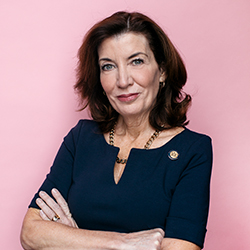
“I tell my staff, we don't do tired,” she says. Even though Hochul traverses the state and sometimes visits several cities in one day to promote the governor’s agenda, Hochul is energized by public service – and by the naps she has learned to take on planes and in cars.
“I know that while I'm still on this earth and have a finite number of years, it is imperative that I use every day to make a difference in people's lives,” she says. “I will rest at the end of my life.”
Until that point, Hochul is focused on promoting policies she’s passionate about, such as the governor’s democracy agenda, which includes a provision on early voting. Hochul framed early voting as being a gender equality issue because women who are the primary caretakers and breadwinners in their families may not have time to vote on Election Day otherwise.
“It really resonates with women who have to take care of their children, their households, their jobs and many times their parents in the evenings,” she says. “Having the opportunity to vote 12 days before the election plus five hours at a polling place on a Saturday really could be liberating for women.”
Veronique “Ronnie” Hakim
Managing Director, Metropolitan Transportation Authority
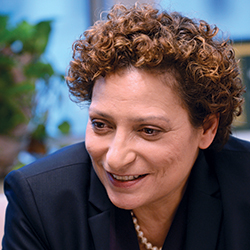
She’s seen some big changes over her three decades – like an increasing amount of women in the male-dominated transportation industry. “I never thought about being a woman in a male industry and whether that was going to hold me back,” she says. Like a Metro-North Railroad train in the snow, “I kind of just ignored it and plowed through.”
But Hakim doesn’t just have longevity; she has lived experience, commuting in just about every way possible. “Over the years, I’ve done buses, I’ve done rail, I’ve done the PATH, I drove sometimes – I’ve tried every type of (commute) there is,” she says. But now working in lower Manhattan, she has the most enviable commute of all: “I actually live in the downtown area, so many times I walk.”
Ronnie Lowenstein
Director, New York City Independent Budget Office
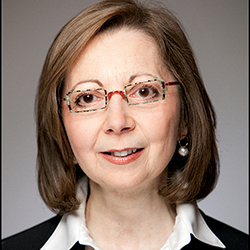
“I think our days of sweating out charter revision commissioners are probably behind us,” she says.
Lowenstein, who has been the IBO’s director since 2000, is largely responsible for making the office feel essential.
“When our phone rings, it could just as easily be (the right-leaning) Manhattan Institute or (left-leaning New York Public Interest Research Group),” she says. “It’s taken years to build up that credibility, and I think it’s the strongest thing we’ve got going for us.”
Lowenstein admits that even she was a skeptic once. “When I first heard about this, my first reaction was, ‘Well the last thing the city of New York needs is another fiscal monitor.’”
But Lowenstein has grown to love it, and is a fierce defender of her office’s independence.
“I love what I’m doing and I really believe in the mission of the agency,” she says. “There are very few places where you can do your research and, regardless of where the answers come out, if the research is solid, that it goes out.”
Betty Rosa
Chancellor, state Board of Regents
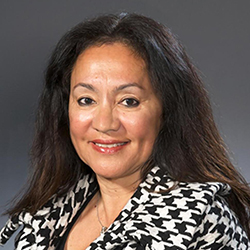
“Realizing how I touched her life because she shared it with me, was probably the biggest award that (anyone) in this position can receive,” she says.
Born in New York City and raised in Puerto Rico until she was 10, a young Rosa returned to the Bronx to face a struggle as her parents struggled with work and their marriage. It was the kindness of a teacher that led to her success.
“There was a wonderful teacher and guidance counselor,” Rosa says haltingly. He stood up for the new girl from Puerto Rico and insisted she should take the gifted classes. “I realized the importance of people believing in you.”
It was only after she took a teaching job on a whim, loved it, serving children in the Bronx, she says, “I found my voice, I found my space, I found myself in loving my kids and walking them from an unsafe situation to the school that we made a safe harbor for those children.”
Gale A. Brewer
Manhattan Borough President
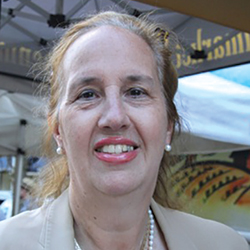
“Everybody has binoculars and they go on the roof. They see the helicopters are making too much noise and they have their decibel readers with them. That’s how they are,” Brewer says. “You’ve got to be on your game to make sure that you have a good response and that you are responsive. … It really trains you.”
Brewer has maintained her legislative presence, sponsoring progressive laws like the Fair Chance Act that blocked employers from asking about an applicant’s criminal history before making a job offer. But she’s still hyperfocused on her constituents, attending events at an incredible pace.
“That’s how you learn what is on the mind of Manhattanites,” she says of her public schedule. “I need to hear what people have to say directly.”
Labor
Audrey Browne
Consultant, District Council 37 Benefits Fund Trust
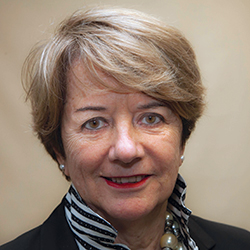
The areas of law may have been different, but each case was ultimately about fighting for workers, Browne says.
“I don’t see the world any other way,” she says. “I certainly wouldn’t want to use my education to help rich people get richer. I don’t think they need any help in that direction. I think workers need all the help they can get, and the deck is stacked against them.”
In the office of the general counsel for District Council 37, she won cases against the NYPD, keyboard manufacturers and others. For the past 15 years, she has worked for DC 37’s health and welfare funds. Now, recently retired and transitioning into a role as a consultant, she continues to oversee more than 20 pending class-action lawsuits against the pharmaceutical industry.
“I’ve been very fortunate to be able to represent people who really deserved better and occasionally got better because we were able to prevail in some of the litigation we did,” she says. “It’s really more a calling than a career.”
Julie Kushner
Director, United Auto Workers Region 9A
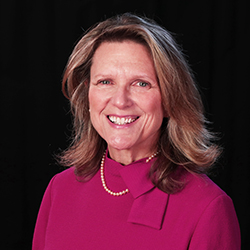
Kushner began organizing secretaries, and she spent the next four decades working to right wrongs in the workplace – with a focus on those impacting women.
Just a few months away from retirement, Kushner often finds herself discussing how much has – and hasn’t – changed.
“We’ve made progress, but not enough,” Kushner says. “Would I would have liked it to have been quicker or more comprehensive? Apply more broadly to women of color as well as to white women? Of course. But you can’t deny there’s been tremendous progress.”
The fervor of women’s responses to the Trump administration – and of the #MeToo movement – have left Kushner feeling optimistic, she says. She’s joining the wave of women running for office in 2018, campaigning for a seat in Connecticut’s state Senate, where she hopes to work for paid family leave and universal prekindergarten.
“These are sometimes considered women’s issues, but they really are family issues – and when you improve the lives of families, you improve all of society,” she says.
Jolene T. DiBrango
Executive Vice President, New York State United Teachers
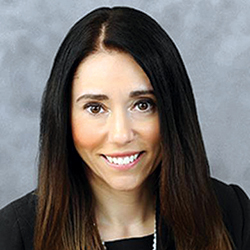
“My late grandfather was a staunch believer in unions and unionism,” she says. “He believed that you should do the most good that you can for the most people that you can, and he believed that unions provided that avenue.”
After DiBrango became a teacher in the early 1990s, her grandmother would ask her about her students. But her grandfather always had one question: “How’s your union?”
As she made her way through her 25-year teaching career, DiBrango found herself more and more attracted to union roles. She became president of her local union, then a board member of the New York State Teachers' Retirement System and now executive vice president of New York State United Teachers.
DiBrango, the daughter of a barber and a teaching assistant, believes it’s a meaningful way to honor her grandfather’s passion for social justice.
“A good, high-quality public education that is free and accessible to everyone is the great equalizer,” she says. “It unlocked so much for me, and … I feel like I’m giving back.”
Liz Clark Moran
President, Civil Service Employees Association Local 698
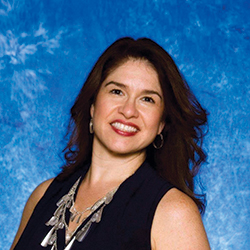
Moran joined with other workers to press for more transparency, and eventually she was elected president of Civil Service Employees Association Local 698.
“I figured that an uninformed person who is willing to do everything is far better than a very informed person who’s not willing to do anything,” she says. “And I jumped into it.”
In the nearly nine years since her election, Moran has organized new members, negotiated contracts and helped to boost worker benefits. She was recently elected president of the New York state arm of the Coalition of Labor Union Women.
Moran says her greatest accomplishment is uniting the members of a once-divided CSEA Local 698. She has worked to connect the group’s members, who are spread across industries and separated by geography, and educate them about their union benefits.
“I’ve always been the kind of person who has tried to do for others,” she says. “I just can’t sit by idly. I need to take action.”
Neva Shillingford-King
Executive Vice President, 1199SEIU
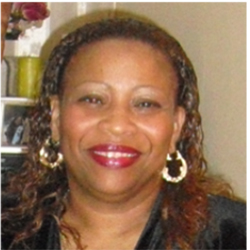
It was a natural path for a girl whose grandparents had always been passionately involved in politics. Once she moved to the U.S., she continued to advocate for candidates and causes. In 1989, she was the Bronx coordinator for David Dinkins in his narrow New York City mayoral victory over Rudy Giuliani. The next year, she became an organizer for 1199SEIU, and she has never looked back.
“When you organize workers in a workplace, you’re not just organizing them to stand up against injustices,” says Shillingford-King, now executive vice president of the union. “You’re organizing an extended community, because when you organize those workers, they take that empowerment and they take it back into their homes, into their churches.”
Shillingford-King now spends her days negotiating on behalf of the union’s members and promoting the organization’s message and mission.
“It goes back to what my grandparents instilled in me about helping, about … not being a part of the chaos, of the problem, but being part of the solution,” she says.
Health
Phoebe Boyer
President and CEO, Children’s Aid
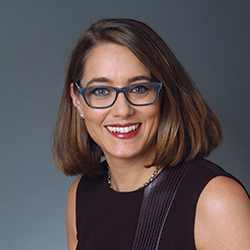
She says she is proudest of how the organization brings together educational, health care, nutritional and wellness components to tackle the impacts of poverty, such as a child missing school because of chronic asthma. “Frankly there are too many single solutions,” she says. “I have been both a direct service provider, and a funder, and worked in government. That has given me a really valuable perspective. If you’re passionate about an issue or a topic, seeing it from different sides helps you adjust and adapt in periods of uncertainty.”
Donna Proske
Executive Director, Staten Island University Hospital
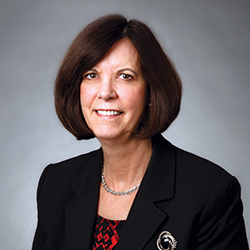
That aspiration faded, but Proske has built a career as a formidable leader, working her way up through the ranks at Staten Island University Hospital to become the first female executive director.
It’s been a long and accomplished journey for Proske, who first landed at the hospital straight out of nursing school more than 45 years ago. She has participated in decisions surrounding the growth of the hospital from a small community institution to one with multiple locations, a regional burn center, a new emergency department and the capacity to provide advanced neurosurgery.
“When you’re at a place for 40-something years, you get to see it all, and to be part of that in a significant way has really given me a great sense of accomplishment,” she says.
Proske prides herself on leading with a participatory management style, and says she relishes applying her clinical knowledge to operational concerns.
“It’s a wonderful profession,” she says of nursing, which has brought her into some highly unexpected roles. “There’s a lot of movement within that career without changing careers.”
Laura McQuade
President and CEO, Planned Parenthood of New York City
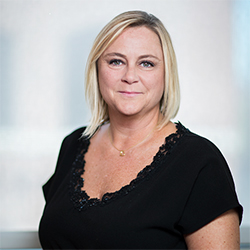
But when she became executive vice president and chief operating officer for the global Center for Reproductive Rights, she saw firsthand how women’s rights were under attack in the U.S.
McQuade decided to turn her focus to the fight here at home. In 2014, she became CEO of Planned Parenthood of Kansas and Mid-Missouri. When she transitioned to the role of president and CEO of Planned Parenthood of New York City last year, she discovered that the divide between red states and blue states wasn’t nearly as significant as many people think.
“We’re not there yet,” she says. “We are not the city and state we think we are. There’s a lot more work to be done in health equity, gender equity, racial equity, economic equity.”
Now McQuade is at work to expand Planned Parenthood’s services and reach to better serve New York City’s underserved communities.
“(We) ensure that people not only get care, but they’re treated with the respect and dignity that they deserve,” she says.
Marianne DiTommaso
Vice President, Residential Services and Opioid Treatment Centers, Saint Joseph’s Medical Center, St. Vincent’s Hospital Westchester
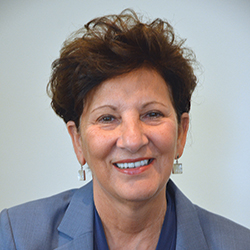
“I was inspired by the people that I was working with in the clinic setting and saw that it was really a calling and I really wanted to help individuals with mental illness,” she says.
DiTommaso went back to school for her master’s degree in social work and has been working in the field since 1982. In her current role, she manages and develops supportive housing for people with mental illness to give them more independence while still receiving essential services. But DiTommaso says that can be difficult.
“The biggest challenge is dealing with stigma and fear in the community that people with mental illness are dangerous, which is absolutely not the case,” she says.
Reflecting on her successes, DiTommaso says she will always remember when her first major housing project opened about a decade ago and the sign welcoming its new residents that read, “Welcome Home.”
“For individuals who have lost contact with their families, we become their families. It’s a very powerful setting,” she says.
Ana Cristina Garcia
Director, Government and Community Affairs, NewYork-Presbyterian
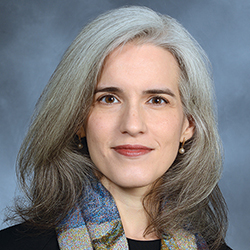
When Ana Cristina Garcia headed to the West Bank after college to work with a medical relief organization, she saw firsthand the powerful connection between health care and the well-being of civil society.
“In addressing basic human needs and developing the infrastructure for caring for people, you can also be building up the essential fabric of what a community needs,” she says.
Garcia had been interested in pursuing anthropology, but the experience prompted her to delve into a career in public health. She took on roles with several organizations, including the American Academy of Pediatrics and the Vermont Department of Health before becoming the director of health policy for the New York Academy of Medicine.
As the executive director for policy, planning and strategic data use for the New York City Department of Health and Mental Hygiene, Garcia acted as a liaison to the health care community. Now that she is the director of government and community affairs for NewYork-Presbyterian, she is approaching community health care from the other side.
“I’m still learning a lot about what it is to be inside a system and to … figure out the right balance of advocacy with helping the multiple interests flourish at the same time,” she says.
Education
Akilah Rosado
Vice President for Governance and Community Engagement, Bank Street College of Education
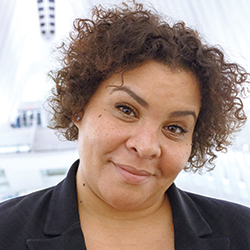
Rosado began her career at the Assembly, where she worked as a legislative analyst, director of constituent affairs and chief of staff.
Today, she serves as vice president for governance and community engagement at Bank Street College of Education. At Bank Street, she learned “how important issues in education, particularly public and urban education, would become both professionally and personally in examining issues of inequity.”
Throughout her career, Rosado realized she has one superpower: her voice. And at Bank Street, she works with the social justice and equity initiatives, implemented in 2015, to help young girls find the same power.
“One of the most damaging things a girl and woman can experience is not having a voice, only slightly more insidious is when women silence other women,” she says.
This “work in progress” is also what she considers to be the most challenging. “At the end of the day, we have to remember that our priorities really are children, their learning and preparing the next generation of teachers to be great instructors and teacher-leaders,” Rosado says.
Deborah Koetzle
Executive Officer of Doctoral Program in Criminal Justice, John Jay College of Criminal Justice
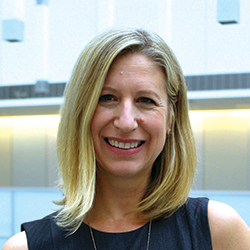
“I’m fortunate to be among that group that gets their hands dirty,” Koetzle says. “I’m hoping to make a difference … (by) helping to bridge that gap between research and practice.”
Koetzle has been brought in as a consultant to improve corrections programs in New York and beyond. She also trains staffers how to assess an individual’s likelihood of reoffending and most significant risk factors – insight that can be used to create targeted treatment and supervision plans.
She helped to develop and secure funding for a specialized probation program for 16- to 24-year-olds in New York City, and she is currently working with El Salvador’s prison system to help improve the severe overcrowding there.
In graduate school, Koetzle did an internship at a state prison and saw firsthand how many prisoners had become trapped by bad decisions and difficult circumstances. Helping them, she knew, would help their communities as well.
“There are such a number of collateral effects that extend beyond the individual,” she says.
Mayra Linares-Garcia
Board of Trustees Member, The City University of New York
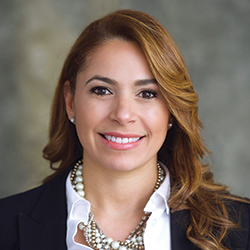
“I grew up handing out flyers from a very, very young age, like 5 years old,” she says.
For her, community engagement and working on the local level is of the utmost importance, a belief she brought with her when Gov. Andrew Cuomo appointed her to the CUNY board of trustees.
“Meeting with the presidents, meeting the faculty, meeting with students and becoming their advocate cheerleader on issues that they feel strongly about, and being able to engage in a direct way helps me ... to add my own knowledge and understanding from a local level,” she says.
Linares-Garcia ran an unsuccessful campaign for Assembly in 2012, which she still considers one of her biggest accomplishments despite the loss. But that hasn’t stopped her from still engaging with her community through her work in the corporate world, now working for Coca-Cola Co.
“The work that needs to be done in a community, you don’t have to do it just in public office. Everyone should feel a responsibility to do it from whatever platform they are able to use,” she says.
Linda Werbel Dashefsky
Vice President for Government and Community Relations, St. Francis College
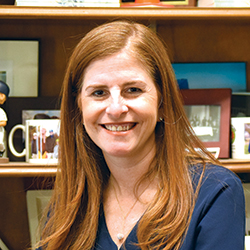
As vice president, she has been able to bring attention to the fact that “St. Francis College is not just our students, it really serves a whole community.”
Werbel Dashefsky is especially proud of the college’s affordability programs, with 96 percent of its students receiving financial aid. “It’s really a college for everyone – just because it’s private doesn’t mean students can’t afford it,” she says. She also mentions its “record of social economic mobility,” giving their lowest-income students a chance to be more prosperous as adults.
As the Title IX coordinator, she has also been involved with the college’s initiatives to prevent sexual misconduct and gender discrimination. “I do believe that colleges and universities play a critical role in framing the dialogue around gender equality and sexual assault,” she says. “It’s really important that individuals have a right to be heard.”
Joanne Ardovini
Human Services Professor, Metropolitan College of New York
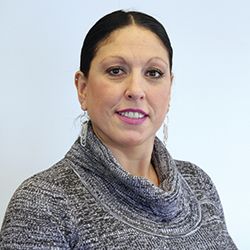
She stresses how mindfulness shows students the impact of mental well-being on academic success. One struggling student she helped into a shelter following eviction is now assistant director of that homeless shelter. She says young women shouldn’t get discouraged. “When I left Sam Houston and came to Metropolitan, to a certain extent I saw it as a failure that I didn’t stay at research, and then I started to realize that I did more publications … when I was at Metropolitan. … I think it was because there wasn’t that pressure. I did it because I loved it.”
Law/Lobbying
Deborah Van Amerongen
Strategic Policy Adviser, Nixon Peabody LLP
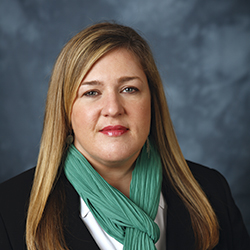
Now, working with private sector clients to help them navigate key government approvals in affordable housing transactions, that has changed.
“Here I’m really involved in the transactions themselves,” she says. “It’s more direct than when I was a commissioner administering these programs.”
To VanAmerongen, the work feels like a perfect fit for her love of creative thinking and problem solving – as well as her deep governmental and policy expertise.
Working in housing, VanAmerongen says, is a way to make profound impacts on individuals’ lives. It’s something she saw as an Assembly staffer as the director of multifamily housing for the U.S. Department of Housing and Urban Development for the New York City region and as the New York state housing commissioner.
“If you’re not stably housed, that impacts every aspect of your life. It’s a fundamental that doesn’t get enough attention,” she says.
Janice Mac Avoy
Partner and Co-chair of the Real Estate Litigation Practice Group, Fried, Frank, Harris, Shriver & Jacobson
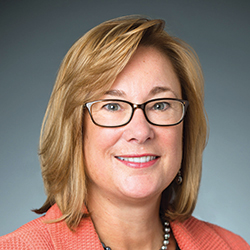
So Mac Avoy has worked to mentor women and promote business opportunities for women. In her pro bono work, she has worked to protect victims of domestic violence and defend reproductive rights. By her count, the Sanctuary for Families board member has helped hundreds of women escape abusive relationships.
"If a woman can't be free from violence or can't control her own body, she has no ability to succeed," she says.
Mac Avoy, who launched and grew the real estate litigation practice at Fried, Frank, Harris, Shriver & Jacobson, is now helping to launch Women in Real Estate, a new organization aimed at increasing women-to-women mentorship in the field.
She's hoping that its programs may reduce what she describes as a confidence gap between young men and women in the profession. "The only way to achieve parity is for everyone to make an effort to bring women along," she says.
Neysa Alsina
Counsel, New York City Bar Association
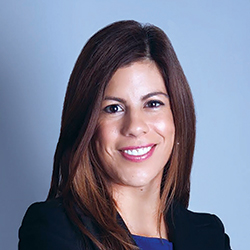
“I was just driven by looking at her and seeing how much she was able to do on her own, that I could be just like my dad and go to law school and make a better life for us,” she says.
Alsina describes herself as a hustler, which is how she landed her current position as counsel to the 24,000 member New York City Bar Association. She had long been involved with associations and jumped at the opportunity to continue following her passion.
“I thought, why not work for an association that I believe in its mission and that I can get paid for some of this stuff I do for free?” she says with a laugh.
Alsina also cares deeply about diversifying her profession, something she has dedicated time to over the course of her career.
“You want to see others in your position, or the position you aspire to be in,” she says. “I feel a responsibility to help others develop because it was done for me.”
D. Hara Perkins
Director, Goulston & Storrs
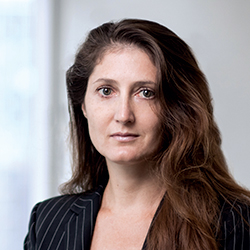
She was working full time at the Museum of Modern Art while the museum negotiated with New York City regulators to resolve issues related to the institution’s expansion. Perkins realized the best way for her to make a difference on behalf of cultural institutions wasn’t as a museum staffer, but as a lawyer.
Since then, Perkins’ career has been built around negotiating land use that serves communities.
“The built environment shapes our experience of the world in more ways than we recognize, from inspiring us with beauty to allowing for the resources that we need in our daily life – like fresh groceries – to be available,” she says. “The built environment is fundamental to access and social equity.
It’s a consideration that has guided Perkins’ work helping to establish Cornell Tech’s Roosevelt Island campus and negotiating the redevelopment of the Lower East Side’s Seward Park Extension Urban Renewal Area.
“It’s been an overarching theme in my life,” she says. “The way that the city is built affects our lives.”
Lisa M. Marrello
Managing Principal, Albany Office, Jackson Lewis
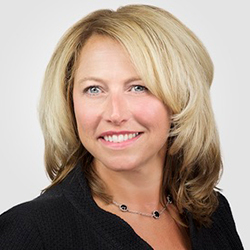
So when it was time to jump to lobbying, she was ready. But not any law firm would do – she wanted to work for lobbyist Kenneth Shapiro. Two weeks after her twin sons were born, Shapiro asked her to come on part-time.
“I thought it was a good opportunity to get my foot in the door, and we were together for 17 years,” she says. “It was a great experience, certainly working at the foot of the master. Ken is a legend in our world, and he provided great insight, and I had an opportunity to work with a variety of clients.”
Marrello is now the managing partner at the Albany office of Jackson Lewis, which recently was joined by Shapiro’s lobbying practice from Wilson Elser.
“Ken was certainly one who afforded everyone an opportunity to grow, was not a micromanager and really encouraged everyone,” she says. “I hope that I can carry that through.”
Real Estate
Elysa Goldman
Director of Development, Triangle Equities

It all began in college, when she interned with the state comptroller’s real estate investment group. In graduate school at New York University, she took a land use class that got her hooked. Then she took a job with the city’s Economic Development Corp.
“It was very much a stepping stone for me because I feel very comfortable in the city environment and getting all the land use approvals and acquiring property from the city, negotiating with the city and all the politics involved in that,” she says.
Now at Triangle Equities, she does it all – acquiring properties, securing funding, getting land use approvals, working with architects and engineers on design, and leasing to tenants.
“I find the boroughs of New York intriguing, and it’s so interesting to me the personalities of the communities in every borough,” she says. “That’s why I love real estate so much and that’s why I love working with communities and bringing them amenities and things that they don’t have.”
Melissa Burch
Executive General Manager, Lendlease Development
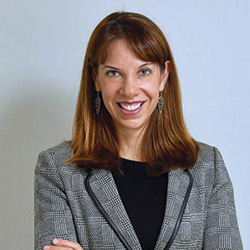
Burch has spent much of her career facilitating that dance. In more than a decade at Forest City Ratner, she helped oversee the development of Brooklyn’s Pacific Park project. Since 2015, as executive general manager for Lendlease Development, she has helped the global firm launch its development business in New York.
“I’ve always been very civically minded, so (I) have been interested in how the private sector in particular can be deployed and utilized to bring about positive outcomes in the public realm,” says Burch, who also serves on the board of the Coro New York Leadership Center.
In real estate development, the issues are so complex, interwoven and at times jumbled that Burch compares them to a bowl of spaghetti. The fascinating work lies in finding the ways that diverse stakeholders can come together for common interests. It is a type of collaboration that particularly flourishes in New York, she says.
“Across government and business, there’s a sense of shared purpose. We’re in this together,” she says.
Lisa Kirsch
Senior Vice President of Development, Brooklyn Navy Yard Development Corp.
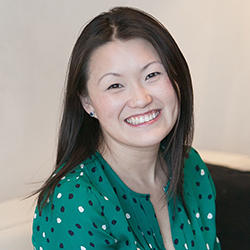
It was “numbers on a piece of paper,” she says. “Just piles and piles of paper and computer screens.”
Instead, she turned her focus to a field that would allow her to impact the world around her in concrete ways.
“Real estate is in everything that we live, work, breathe. It’s all around us. And you can see the effects of what you’re doing,” she says.
Kirsch spent nearly eight years as a vice president at the New York City Economic Development Corp., helping to shepherd massive projects that have transformed the landscape of the city where she grew up.
Now that she is working at the Brooklyn Navy Yard, she relishes interacting on a daily basis with the people impacted by the site’s transformation.
“My parents are immigrants, and those types of jobs are less and less available here in New York,” says Kirsch, the daughter of a seamstress and a cook. “The Navy Yard really provides an alternative to getting a higher (education) degree and sitting in an office.”
Jolie A. Milstein
President and CEO, New York State Association for Affordable Housing
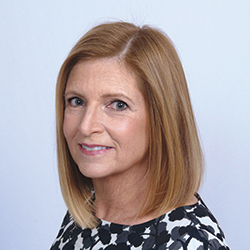
Milstein figured she should learn something about the financial side of development, and she set off to earn a master’s degree in business administration. The decision set her on a winding path to Wall Street, working with mortgage-backed securities, then to head up economic development efforts at the Ulster County Development Corp., then to New York City, where she became president and CEO of the New York State Association for Affordable Housing.
Through all her many steps, the one constant thread has been an interest in and connection to housing.
“I was never the kind of designer who wanted to build an office, an ivory tower,” she says. “I always was very much concerned with how people live in buildings.”
Now she is working at the local, state and national level to fight the housing crisis. It’s a satisfying role for Milstein, who as a young child proclaimed she wanted to be an efficiency expert.
“I imagined a job where I could make things work better,” she recalls. And, she says, she has done just that.
Jaimee Nardiello
Partner, Zetlin & De Chiara LLP
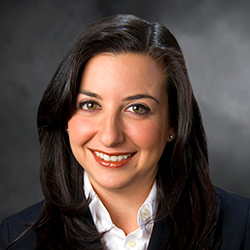
That’s no surprise. Her family had a construction business when she was growing up in New Jersey. Before law school, she worked at a large construction management firm in New York City. And her husband is in construction too.
“I am a construction lawyer, so I primarily focus on litigation,” says Nardiello, a partner at Zetlin & De Chiara LLP, which represents major construction firms. “We represent a lot of owners, developers, contractors, architects and engineers in New York City – but pretty much anywhere our clients have an issue they’ll call us up and we have to travel.”
Nardiello is also active outside her day job, including as president of Commercial Real Estate Women New York, the city’s largest organization of women in the industry. The organization, which is celebrating its 40th anniversary, emphasizes mentorship and encouraging young women who are just starting out.
“I would say don’t get discouraged,” Nardiello says. “Looking at it from the outside, where it does really appear to be a male-dominated field, could be very discouraging to a young woman. But it can be done. I do it every day.”
NEXT STORY: Still Rising: The NYC 40 Under 40 all-stars

